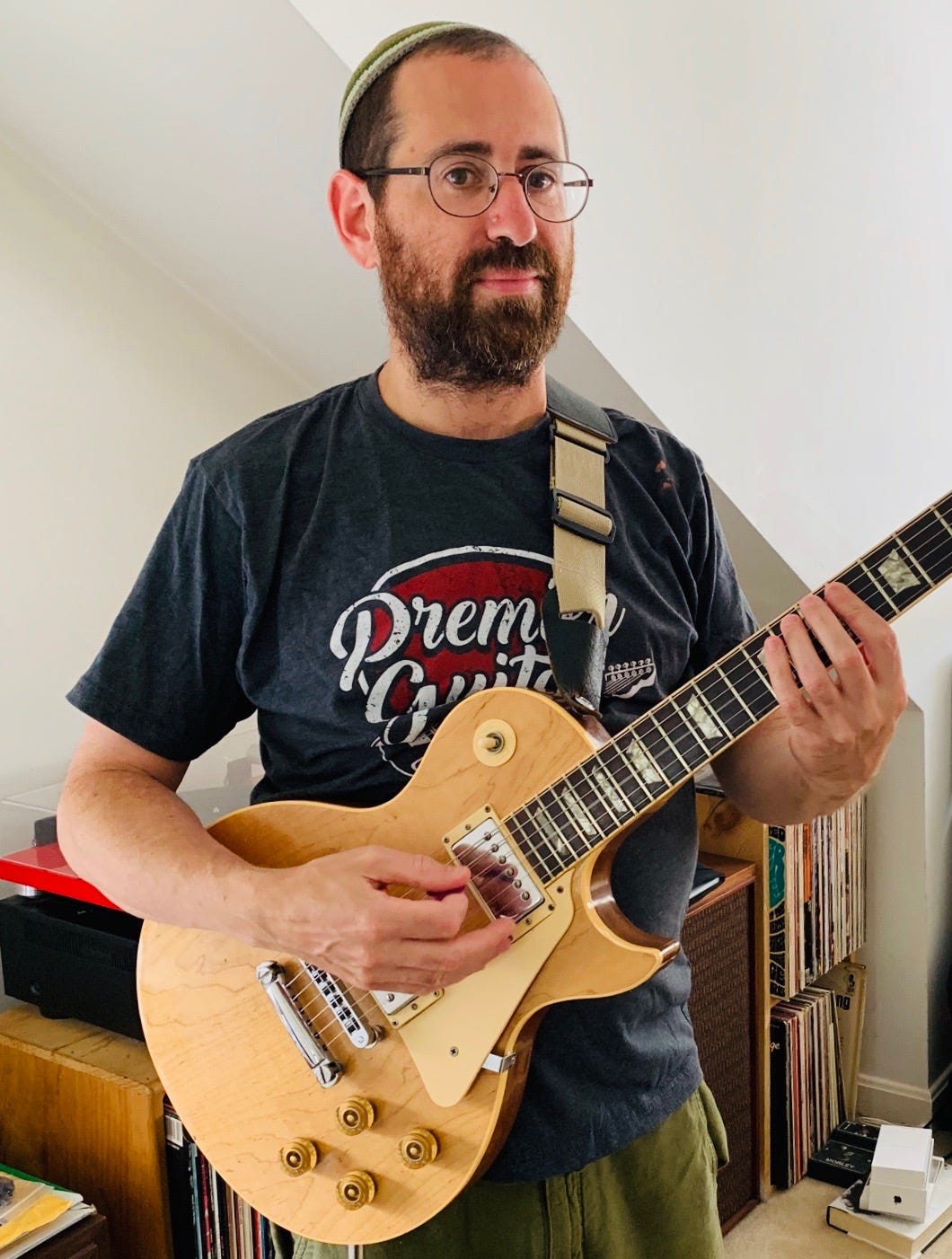What is this?
The Ingathering is a series of interviews and essays, and takes a comprehensive look at Jewish music and spirituality, with a specific focus on four areas:
Interviews with Jewish and Israeli musicians and artists
Roundups of music you need to listen to
Historical features about important movements within Jewish music
Essays about the inherent spiritual nature of music as understood through the prism of Jewish teachings and tradition
What is Jewish music?
Defining Jewish music isn’t easy—and like most things, is something Jewish people argue about—but for the purpose of this series, I am defining it as two things:
The music of diaspora Jewry
Israeli music
And I am distinguishing between the two.
The music of diaspora Jewry is music that’s “Jewish” in some way. To me, that means it borrows, incorporates, blends, or pays homage to music associated with Jewish people or Jewish communities from around the world. That could be a punk take on klezmer, an EDM-style reinterpretation of traditional cantorial melodies, an Israeli disco revival band, a heavy metal re-imaging of Hasidic songs, or whatever. It isn’t an interview with, say, Bob Dylan, because he happens to be Jewish, or a story about newly religious rockers who like to sing about gratitude, God’s glory, or waking up early to pray.
Israeli music is music from Israel and Israeli artists. I am not concerned, at least for this series, with genre or any outward connection to Jewish culture or the Jewish religion.
If those classifications sound arbitrary, it’s because they are, and is something I will be exploring with the artists I interview in depth. But, at least for now, it’s an amorphous classification that makes sense to me. I am not a mainstream person—most Top 40, Broadway musicals, and singer/songwriters don’t do it for me—so don’t expect to find much of that here. The Ingathering is a place to discover incredible music you won’t hear about elsewhere. Consider it a peek into another world as opposed to an all-encompassing overview of everything music and Jewish.
How about spirituality?
The spiritual side of the Ingathering examines the relationship between music and spirituality as seen through the prism of Jewish teachings and tradition. It does not dabble in universalist feel-good fluff or new age platitudes. It is not about self-help, mindfulness, or the healing power of crystals. Those things aren’t bad per se, but they are not my focus. I will examine music as discussed in the Torah, Talmud, and mystical sources, as well as what I learn by way of discussions with rabbis, scholars, and others. My goal is to go deep, but to explain that depth in a language accessible to everyone (or at least, lay readers and non musicians).
How can I support this?
You can start by joining our mailing list. Sign up, and receive a free edition of the newsletter every week.
You can also subscribe. Subscriptions are only $5 a month, or $50 for an entire year (2 free months!), and for a limited time, we’re offering 40% off the annual price. That means you get a one-year subscription for just $30.
In addition to the regular, weekly content, paid subscribers also get:
Deep, probing essays about the spiritual nature of music, which offer a uniquely Jewish take on music and spirituality.
Incredible curated playlists. These playlists include more than just music from the artists featured in the Ingathering, but also things I stumble upon in my research, and amazing things I need to share. If you’re a paid subscriber, you’re someone who needs to hear this.
If you’d rather just give a donation, you can do that, too. The Ingathering is a project of Vechulai, a registered 501(c)3 tax exempt organization. Go here to donate and learn more.
Who are you?
I am a Boston-based freelance writer and rabbi. I write about music—and a few other things—for publications like Premier Guitar, Bandcamp Daily, Reverb, Vinyl Me Please, plus the Substack series about music and business, Plus One Me. I have a degree in Jazz Studies from the New England Conservatory of Music (I graduated a long time ago), but my interests are not limited—at all—to jazz. I like music with personality and edge, and that includes loud guitars, daredevil improvisation, fast tempos, never-ending-trance-inducing grooves, raw production, lo-fi, no-fi, weird dissonance, noise, singable melodies, world grooves, and basically anything where it’s obvious the artist is real. Visit my site to see recent interviews and features.
I lived in Israel from mid-1993 until January, 2001. I studied at Yeshiva Aish HaTorah in Jerusalem’s Old City, and received my rabbinical ordination from Rabbi Noah Weinberg ztz’l. I spend most of my time—at least, when I am not listening to or writing about music—teaching classes online for Olami, as well as a number of other Jewish organizations.
I started the Ingathering as a way to combine my disparate interests, learn about music I wouldn’t hear about otherwise, have an excuse to interview musicians I value and admire, and to share the incredible things I have learned about the interrelationship between spirituality and music.
What’s in a name?
This series is called the Ingathering, which comes from the phrase, kibbutz galius (קיבוץ גליות—the ingathering of the exiles). We live in a magical time, and have global access to music for maybe the first time in history. This series hopes to bring those musics together in one place.
How do you pronounce your name?
My name is Tzvi, and it’s easier than it looks. Take "tz," as in ritz. Add "vee." It's one syllable and it rhymes with "ski." Got it?

